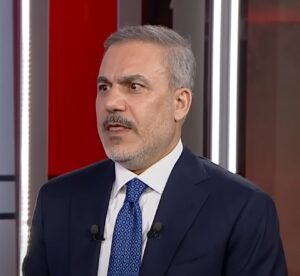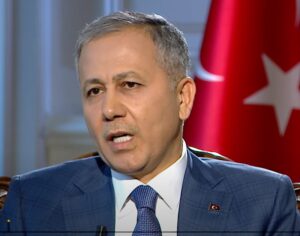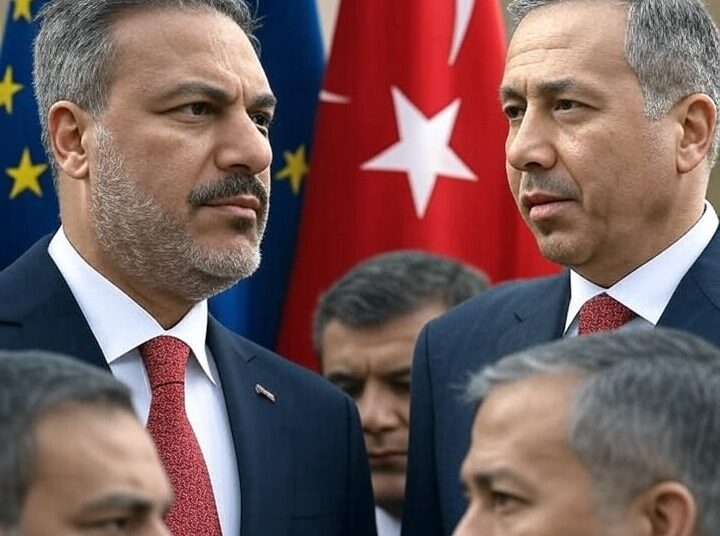Abdullah Bozkurt/Stockholm
Hundreds of millions of euros from the €10 billion allocated by the European Union to support Turkey’s EU membership process have allegedly been diverted by the government of President Recep Tayyip Erdogan to finance spying operations across Europe.
The funds — disbursed under the EU’s Instrument for Pre-Accession Assistance (IPA) since Turkey was granted candidate status — were originally intended to support political and administrative reforms aimed at aligning the country with EU norms. Between 2014 and 2024, Turkey received €4 billion from the total allocation. Under the current funding cycle, Turkey is set to receive a significant portion of the €14.32 billion earmarked for IPA assistance between 2021 and 2027.
However, confidential sources told Nordic Monitor that some portions of this aid were secretly funneled into covert operations carried out in EU member states. Both the Turkish Interior Ministry and Foreign Ministry reportedly used millions of euros from IPA funds to support intelligence gathering against EU countries — either within EU borders or targeting EU diplomats posted to Turkey.
The mechanism used to obscure the diversion of funds was carefully structured to appear legitimate. Shell companies, front organizations and their operatives were employed to disguise espionage financing as support for Turkey’s EU accession. These entities issued fictitious invoices and maintained manipulated accounting records to conceal the true nature of their expenditures.
On June 16, 2025, Turkish Foreign Minister Hakan Fidan disclosed in a letter to the Turkish Parliament that his ministry had spent €339.9 million from EU funds between 2014 and 2024, while the Interior Ministry used €327.9 million over the same period.
A letter signed by Turkish Foreign Minister Hakan Fidan reveals that hundreds of millions of euros were spent by both the foreign ministry and the interior ministry — two institutions with extensive intelligence operations abroad:
Fidan did not specify how these funds were used. According to sources, however, the money — originally earmarked for administrative reform, capacity building and legal harmonization — was instead funneled into spying networks run through Turkish diplomatic missions.
Fidan, the former head of Turkey’s National Intelligence Organization (Milli İstihbarat Teşkilatı, MIT), has overhauled the Turkish Foreign Ministry since his appointment in the summer of 2023. He placed numerous intelligence officers in top ministry positions and expanded the role of the ministry’s covert spying department, the Intelligence and Research Directorate (İstihbarat ve Güvenlik İşleri Genel Müdürlüğü), turning Turkish embassies and consulates into hubs for clandestine operations.
Under his leadership, a new unit called the Directorate General of Diplomatic Security (Diplomatik Güvenlik Genel Müdürlüğü, DGGM) was established. Officially, the DGGM’s mission is to enhance the safety of Turkey’s roughly 260 diplomatic missions around the world. In reality, the unit operates as a front to deploy more intelligence operatives abroad. Reporting directly to Fidan, the DGGM receives instructions and assignments from the foreign minister himself.

The directorate also assumed the role of providing security for foreign embassies in Turkey, a responsibility previously handled by the Protocol General Directorate in coordination with local police. This change provides Fidan with a pretext to intensify surveillance operations against foreign diplomatic missions on Turkish territory.
Fidan’s aggressive push for intelligence expansion comes at a time when his ministry’s budget has been significantly slashed by President Erdogan. Suspecting that Fidan harbors ambitions to eventually succeed him — a role Erdogan prefers to reserve for his son Necmettin Bilal Erdogan — the president has nearly halved the foreign ministry’s share of the national budget, which dropped from an average of 0.4–0.5 percent in earlier years to 0.289 percent in 2024 and 0.284 percent in 2025.
When excluding the supplemental mid-year budget allocation, the ministry’s annual budget accounts for an even smaller percentage. For example, in 2024, the foreign ministry was allocated 31.4 billion TL (approximately $1.08 billion) out of the total general budget of 14.7 trillion TL (approximately $506.9 billion), amounting to just 0.21 percent.
To compensate for these cuts, Fidan has increasingly turned to EU funds to finance his intelligence agenda.
Another key player in Turkey’s covert operations is the General Directorate of Security’s Intelligence Department (Emniyet Genel Müdürlüğü İstihbarat Dairesi Başkanlığı), which oversees a large network of intelligence operatives. The interior ministry dispatches police officers abroad under the guise of embassy and consulate security personnel, many of whom also serve as liaison officers for law enforcement matters. In reality, they function as undercover agents.
Over the last decade, the Erdogan government has heavily utilized these police intelligence officers to spy on EU countries, with a particular focus on Turkish diaspora communities or foreign embassies in Turkey. Targets of these surveillance efforts include political dissidents, journalists, NGOs and members of the faith-based Gülen movement , especially in countries such as Germany, France, Sweden, Austria and the Netherlands.

Despite being aware of the misuse of EU funds by both the Turkish government and pro-government organizations known for their anti-Western and anti-EU stances, the EU has so far refrained from taking meaningful action. Brussels has not held Turkish authorities accountable, nor has it imposed conditions to prevent future abuse.
A major reason for the EU’s silence is the so-called “migration card” that Erdogan wields against Europe. By controlling the flow of irregular migrants into EU territory via Turkey, Erdogan has extracted significant concessions from Brussels. The EU, fearful of another migration crisis, has prioritized short-term security and migration management over enforcing democratic standards.
Amid growing instability in both Europe and the Middle East, Brussels appears unwilling to risk antagonizing Turkey, a NATO member with the alliance’s second-largest army. EU leaders are focused on preserving a functional partnership with Ankara, even if that means turning a blind eye to the autocratic nature of the Erdogan regime, which continues to undermine fundamental rights, suppress dissent and flout the rule of law.
While EU taxpayers’ money is being used to undermine civil liberties and democratic norms both within Turkey and inside EU member states, the bloc seems willing to sacrifice financial transparency and democratic accountability in favor of strategic pragmatism.












